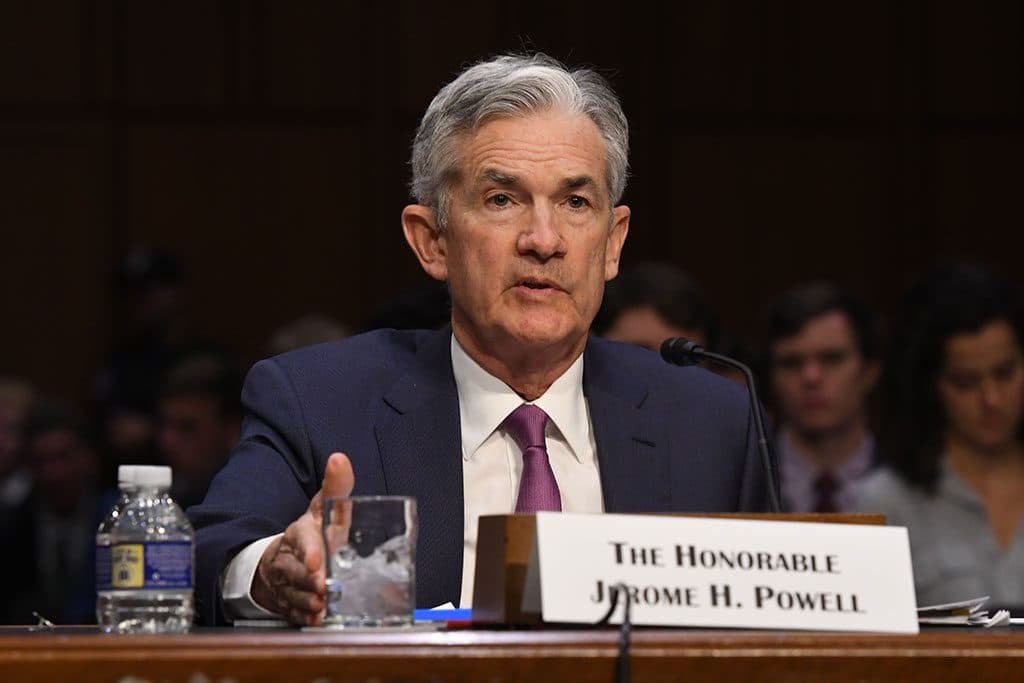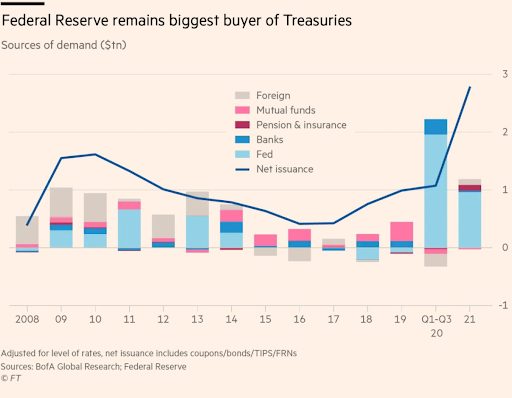Fed Meeting Preview: Will Powell Take ECB’s Lead?
The Federal Reserve’s Open Market Committee (FOMC) meeting begins next week, and while things may appear to be looking up, inflation fears remain.

Jerome Powell, Chair, Federal Reserve
- Treasury 10-year yields hit 1.64% Friday, a high not seen in more than a year
- Concern over bond auctions and inflation fears are pushing yields higher
With vaccine doses climbing and coronavirus hospitalizations starting to decline, the world is inching closer to recovery. The Federal Reserve’s Open Market Committee (FOMC) meeting begins next week, and while things may appear to be looking up, inflation fears remain.
“On Wednesday, it’ll be the Fed’s turn to get specific about any plans to combat rising yields,” said Tom Essaye, founder and president of Sevens Report Research, in Friday’s newsletter. “And, more broadly, re-establish itself as the most aggressive developed central bank regarding the future use of stimulus,”
A dovish Fed
The Treasury 10-year yield surged to 1.64% Friday as the supply of treasuries to finance the US government overwhelmed the demand from buyers. It’s the first time yields have broken 1.6% in more than a year.
Yields have been climbing in recent months as nearly $2 trillion in relief spending, in conjunction with big economic growth, and inflation are hitting at the same time. The 10-year yield started 2021 around 0.9%.
Another concern is bond auctions. US government bond selling picked up again Friday, another factor pushing yields higher. The sales marked the end of a period of relative stability.
“Smoothly functioning bond auctions are more important than the level of yield, so the Fed will do whatever is necessary to make sure that happens,” said Brent Johnson, CEO of Santiago Capital. “The market is expecting a very dovish Fed, and while I think they will be, I’m not sure it will meet the market’s expectations.”

Meanwhile in Europe
The European Central Bank on Thursday announced plans to accelerate bond buying. They also made clear their intention is to remain flexible when it comes to quantitative easing purchases. The decision has many wondering if the Fed will follow suit.
“The ECB is more worried about a particular yield ‘level’ than the Fed is, and I think the Fed’s main concern is that auctions go smoothly,” said Johnson. “The Fed will continue to do what they have been doing and provide support to the market where, when or if needed.”
Learn more about today’s news: sign up for our daily newsletter by Tyler Neville and understand the crypto market in 5 minutes






